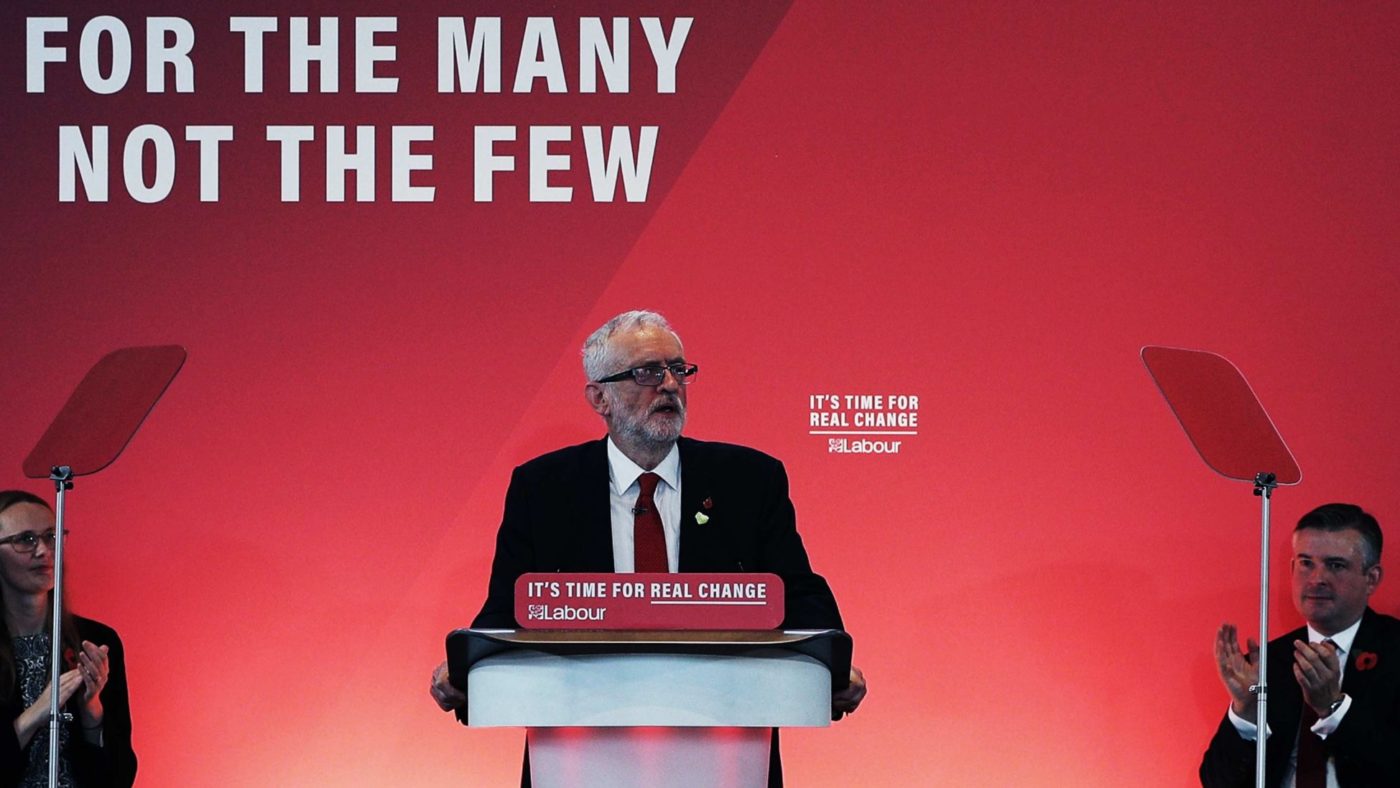It seemed appropriate that the Labour Party launched its election campaign on Halloween. Jeremy Corbyn conjured up a host of bogeymen to scare the voters into supporting policies that would actually harm the very people he says he is trying to help. Apparently, there’s an enchanted forest of magic money trees to pay for all this too.
Of course, his speech today was designed to establish a narrative rather than set out a detailed programme. That will presumably follow later. But even as a piece of rhetoric to an indulgent audience, it was extraordinarily toxic. By singling out and naming a handful of individuals, Corbyn attempted to demonise entire groups – investors, property owners, business leaders… so much for a ‘kinder, gentler politics’.
In reality, his targets were strawmen. Why, for example, pick on Boris Brexit-supporting hedge-fund manager Crispin Odey? There are plenty of well-known figures in exactly the same field who have donated substantial sums to Labour instead, or supported Remain. To imply that finance is against Labour and Remain suggests Corbyn’s grasp of how financial markets actually work is even weaker than those who peddled the ‘hedge fund conspiracy’ nonsense in the first place.
The attack on the industrialist Jim Ratcliffe also shows Labour’s basic misunderstanding of economics (shared by many trendy environmentalists). Companies respond to consumer demand. It’s ridiculous to suggest that major UK businesses are deliberately setting out to make money from ‘polluting the environment’, and that their activities are nothing to do with the rest of us.
This echoes the obvious flaw in Labour’s plans – namely to treat companies as magic money trees. Companies are only legal entities and cannot bear the economic burden of taxes themselves. Instead, all taxes are ultimately paid by people, and if taxes rise, customers and employees are at least as likely to be hit as shareholders.
To the extent that there was any substance in what Corbyn said today, it was just as chilling. Take Universal Credit. Most observers, myself included, agree that the roll-out of the new benefit has been poorly managed and under-funded. However, Labour would abandon the policy completely, risking ‘yet more upheaval and structural change’ and creating a whole new set of problems rather than fixing those that already exist. The losers from Labour’s folly would be some of the most vulnerable people in our society.
Or take Labour’s planned attacks on workers’ rights (yes, you read that correctly). Individuals would no longer be able to agree an employment contract that does not guarantee a certain number of hours of work every week, even if greater flexibility suited both sides. And many young people would be priced out of a job by large increases in the national minimum wage. (That’s not just my view, it’s also the opinion of the OBR and the Low Pay Commission.)
Corbyn also doubled down on the scaremongering about the NHS. Perhaps the claim that a US-UK trade deal would add £500m a week to the drugs bill will feature on the side of an election bus. But in the meantime, I’d be surprised if many patients share his obsession with exactly who employs every person involved in their care. After all, the NHS is already the world’s fifth largest employer. Many more successful healthcare models in the rest of Europe have far higher levels of private sector involvement. Again, it’s some of the most vulnerable people who suffer from our unwillingness to learn from best practice elsewhere
Then there’s the obsession with renationalisation. Again, Corbyn sets up a bogeyman – wicked foreign owners squirreling their profits in tax havens. This is drivel. Thames Water’s largest shareholders, for example, include the pension fund for local government employees in the Canadian province of Ontario. Doesn’t sound like pure evil to me. Others investors include the BT pensions fund and the University Superannuation Scheme, meaning that UK pensioners would be among the biggest losers from Labour’s plan to stump up less than the full market value for renationalised assets.
In summary, it won’t be the billionaires who pay the price of a Corbyn-led government (they’ll be long gone). Instead, it will be ordinary families, workers, pensioners, and those dependent on public services, as the UK economy follows all the others who have already fallen under the spell of his extreme form of socialism. Perhaps if Labour wins, it’s therefore also appropriate that Mr Corbyn would become Prime Minister on Friday the 13th…
Click here to subscribe to our daily briefing – the best pieces from CapX and across the web.
CapX depends on the generosity of its readers. If you value what we do, please consider making a donation.


